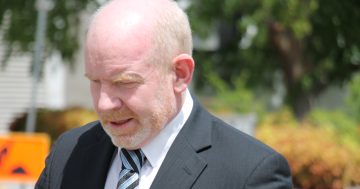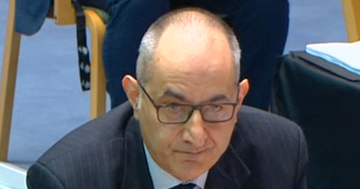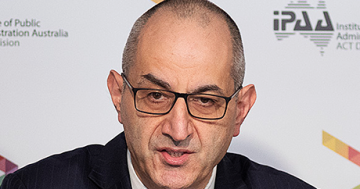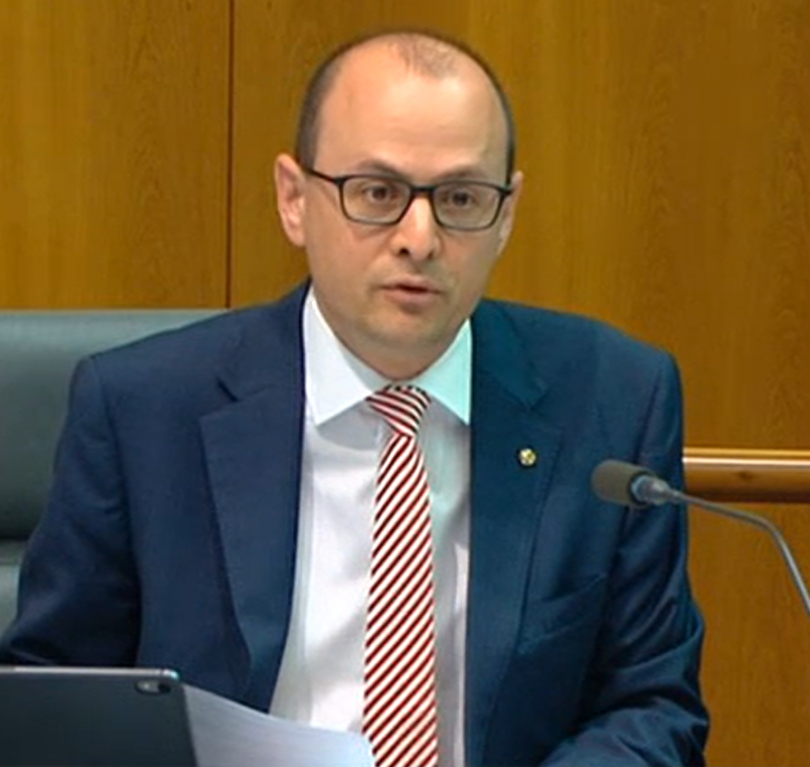
Senator Raff Ciccone found the situation “mindblowing”. Photo: Screenshot.
The Department of Home Affairs spent more than half a million dollars last year renting Airbnb properties in the ACT over an 11-week block so three ministerial delegations could quarantine after travelling overseas, and one of the properties was owned by a senior departmental officer.
Home Affairs officials had to respond to a please explain in Senate Estimates on Monday (14 February), saying the department’s options were extremely limited at the time.
Labor Senator Raff Ciccone questioned the senior public servants about whether the spending to house the 72 officials, who had travelled with the Prime Minister, Foreign Minister and Defence Minister, represented value for money.
Senators were told that the total cost of renting the 19 properties, including cleaning, transport, health supports such as testing and basic essentials amounted to $527,067. The rentals bill itself from 12 September to 30 November came to $344,137.
Home Affairs had been forced to find alternative accommodation when the ACT Government advised the Commonwealth in late August that the usual quarantine options, including premises at the ANU, were no longer available.
My Public Sector
Deputy Secretary Justine Saunders said the ACT Government imposed strict requirements, including that properties be freestanding, with independent access to the building and no shared facilities for things like parking or rubbish.
And despite the quarantine period being only two weeks, the procurement stretched to 11 weeks because they needed to be set up as secure home offices, and due to an ACT requirement, they be rented for four weeks after the initial quarantine period in case a person tested positive and needed to remain longer.
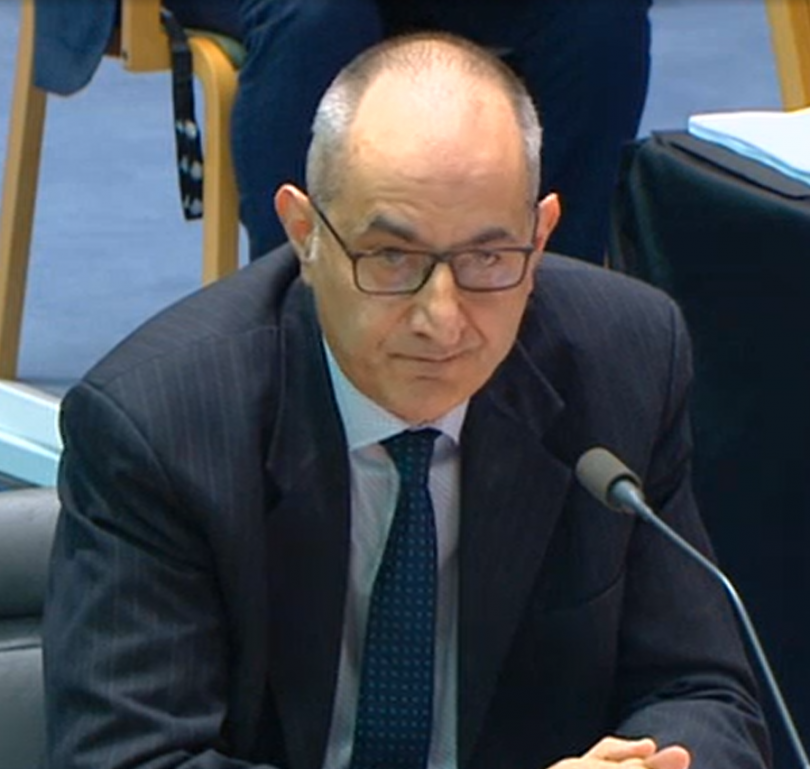
Home Affairs Secretary Michael Pezzullo: satisfied conduct was proper. Photo: Screenshot.
Senators were also told that the department persisted with including the officer’s property in the program despite the officer’s concerns about a conflict of interest.
The total cost of renting that property was $15,981.
Senator Ciccone found this situation “mindblowing”.
“I find it amazing that out of all the ACT, there was only one property that fit the bill — and it just happened to be owned by a first assistant secretary or someone of that ilk,” he said.
Secretary Michael Pezzullo told Estimates that he had ordered an inquiry into the matter when he saw the question on notice.
He said the officer, a First Assistant Secretary, had “self-identified” when they realised their property was part of the accommodation program and said they should not be part of it.
But due to the scarcity of short-term rentals and the ACT Government’s strict requirements, the officer’s superior kept the property in the program.
“Prima facie, on the face of the fact that the officer himself self-identified, I’m satisfied that unless something else comes to my notice, there was proper conduct engaged in,” Mr Pezzullo said.
“Had the officer sought to disguise the fact, had the officer not drawn it to the attention of his superior, had the officer not volunteered to opt-out of the program, I might have [a different view].”












